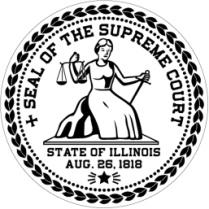Quick Take on Illinois Supreme Court Opinion Issued Thursday, June 29
 Kerry Bryson reviews People v. Ringland, handed down Thursday, June 29.
Kerry Bryson reviews People v. Ringland, handed down Thursday, June 29.
By Kerry Bryson, Office of the State Appellate Defender
In these consolidated cases, the defendants were subjected to traffic stops on I-80 in LaSalle County, with each stop resulting in the discovery of a controlled substance. Those stops were initiated by a team of special investigators appointed by then LaSalle County State’s Attorney Brian Towne pursuant to Section 3-9005(b) of the Counties Code allowing State’s Attorneys to appoint special investigators. Towne named the team the State’s Attorney’s Felony Enforcement unit (or SAFE). The specific purpose of SAFE was to act as a drug interdiction team on I-80.
The defendants filed motions to suppress, challenging the investigators’ authority to conduct traffic stops, as well as the adequacy of the procedure by which they were appointed. The circuit court granted the motions on the basis that statutory procedural requirements for appointment of special investigators had not been met. The appellate court affirmed but on the basis that the investigators lacked authority under Section 3-9005 (b) to conduct the traffic stops in question. The Supreme Court agreed with the appellate court.
Section 3-9005(b) provides that the state’s attorney has the authority to appoint special investigators to: (1) serve subpoenas, (2) make return of process, and (3) conduct investigations which assist the state’s attorney in the performance of his or her duties. The supreme court agreed with the appellate court’s observation that this is an exclusive list.
The SAFE investigators did not serve subpoenas, make return of process, or investigate pending cases. To be valid, then, the traffic stops initiated by SAFE must constitute investigations assisting a state’s attorney in the performance of his or her duties.
To determine whether the stops assisted the state’s attorney, the court looked to the statutory and common law duties of a state’s attorney. Statutory duties are found in section 3-9005(a) and generally include prosecuting cases, defending cases against the county and its officers, and performing “such other and further duties as may, from time to time, be enjoined on him by law.” Duties prescribed by case law include evaluating evidence and interviewing witnesses to prepare for prosecution and performing investigative functions. Towne testified that SAFE helped him perform his duty to eradicate drug trafficking. The court concluded, however, that the state’s attorney’s duty to investigate suspected illegal activity requires deference to law enforcement and comes into play when the illegal activity is not adequately dealt with by other agencies.
Here, instead of assisting or working cooperatively with other law enforcement officers and agencies, SAFE investigators were initiating traffic stops and seeking out illegal activity based on Towne’s instruction to “go out and enforce the law.” If this was permissible, section 3-9005(b) would allow the establishment of 102 additional police forces in Illinois, each directed by the county state’s attorney, an outcome which the legislature could not have intended.
The dissent criticized the majority opinion as imposing an unworkable limitation on the state’s attorney’s duty to investigate and impeding the investigatory powers of the grand jury. While it may be good policy for the State’s Attorney to cooperate with other law enforcement agencies, the dissent concluded that nothing prohibits the undertaking of independent investigations. The dissent would have upheld the SAFE unit on the basis that state’s attorneys have the authority to investigate suspected illegal activity regardless of how other agencies have handled it and without a request for assistance.
This opinion deals with a relatively narrow issue regarding the authority of special investigators appointed under Section 3-9005(b). The SAFE unit in LaSalle County has already stopped operating. And, according to news reports, a similar unit established in Madison County was put on hold when the appellate court issued its opinion in this matter. If other such units are operating in Illinois, today’s decision makes clear that they are improper.

